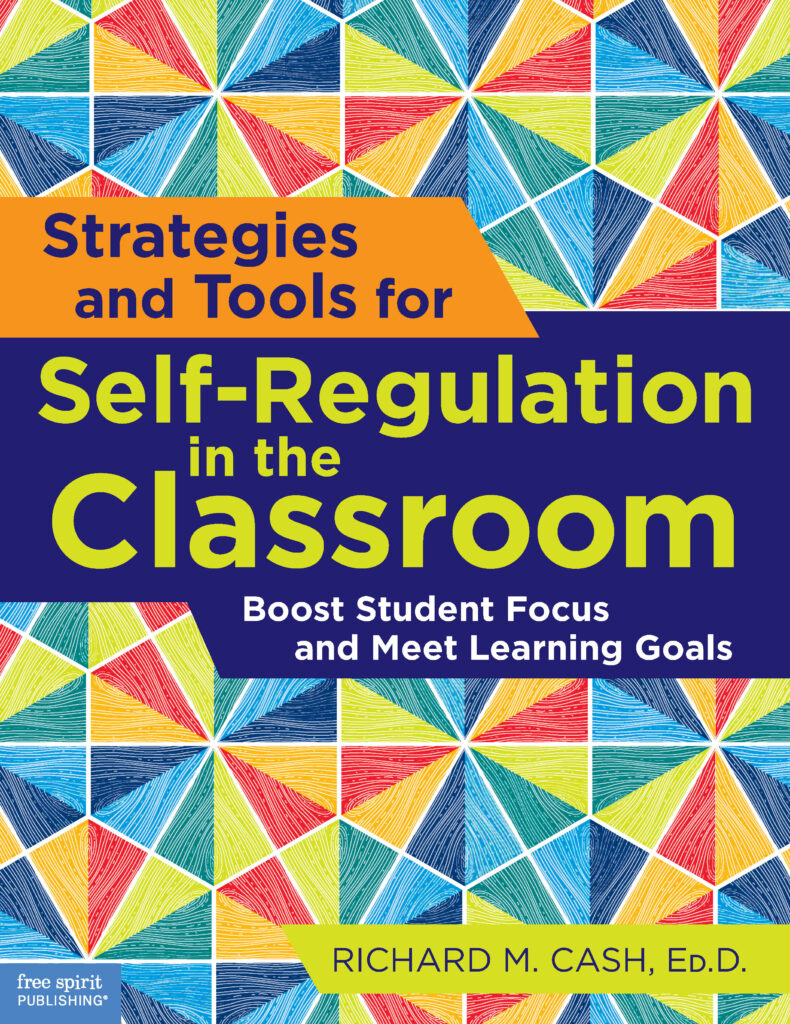Strategies and Tools for Self-Regulation in the Classroom
Strategies and Tools for Self-Regulation in the Classroom provides resources to support students in developing self-regulation and executive-function skills they need to succeed in and beyond the classroom. This book follows the four phases of Engaging in Learning, providing concrete strategies and classroom activities to help students build confidence, set and manage goals, monitor progress, and reflect on their learning. Skills covered include note taking, active listening, taking breaks, balanced technology use, positive thinking, using a study buddy, staying healthy, and many more.
You can easily incorporate teaching the strategies and activities into daily routines, making it easy to boost student achievement in small doses. Pick and choose the skills and activities that are most helpful for your students and most effective in your schedule.
- Discover strategies to increase student self-regulation and academic success
- Implement brief lessons that fit perfectly into morning meeting, advisory, or homeroom schedules
- Learn how to effectively teach and continually reinforce good study habits
- Improve your teaching with student-facing activities, reflection questions, and informative passages
Written by Dr. Richard M. Cash, a recognized leader in gifted education, this book is perfect as a companion to Self-Regulation in the Classroom or as a standalone resource. Self-regulation is the key to effective learning. This book equips educators with the tools to guide students toward better outcomes and a more fulfilling learning experience.
Self-Regulation in the Classroom
Help students build motivation, resilience, and career readiness with this practical and engaging resource.
To succeed in school, students need more than subject area knowledge—they must learn how to learn. Self-regulation, an executive functioning skill, describes the ways that students focus attention on achieving success. Self-regulated learners find personal value in learning, develop effective study habits, welcome challenges, seek help, and use failure as a learning tool. This user-friendly guide makes the process of developing self-regulation as easy as ABC: Affect (how you feel), Behavior (what you do), and Cognition (how you think). Teaching students to balance these three elements builds motivation, resilience, and college and career readiness. Digital content includes customizable forms from the book.
Advancing Differentiation
My teacher resource, Advancing Differentiation: Thinking and Learning for the 21st Century, brings together essential elements of curriculum design and the latest research on thinking and learning. It is a culmination of my journey as a student of learning. I’ve transformed the theoretical ideas I’ve gathered into practical, proven strategies that can increase students’ achievement and ultimately lead to their future success.
Advancing Differentiation will lead you through the process of creating a thriving, student-centered, 21st-century classroom. Since its initial publication, the book’s materials have undergone rigorous testing and refinement in classrooms all over the world to deliver the best and most effective differentiation strategies.
Differentiation for Gifted Learners
Differentiation for gifted students significantly differs from the ways in which educators differentiate curriculum and instruction for other students. Within a group of advanced learners, the variety of abilities, talents, interests, and learning styles can be formidable. Differentiating for them must go beyond adjusting content levels, task complexity, or product choice. For the first time, this book connects the unique learning differences among gifted students to the specific teaching methods used to tailor their educational experiences. Topics discussed include real-world problem solving, abstract thinking, interdisciplinary concepts, authentic products, learning autonomy, accountability, grouping practices, affective curriculum, 21st-century skills, Advanced Placement and Honors classes, IB programs, underserved populations, and twice-exceptional learners.





